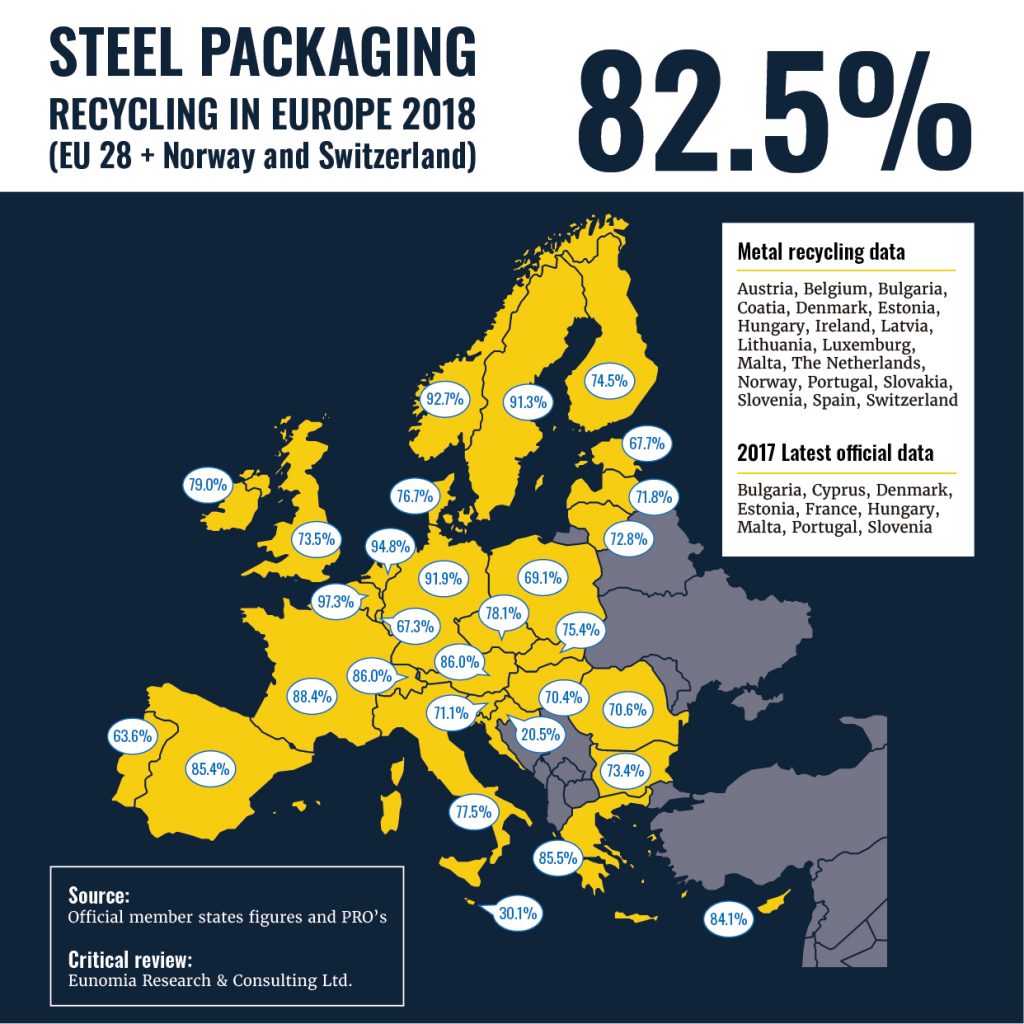This website uses cookies so that we can provide you with the best user experience possible. Cookie information is stored in your browser and performs functions such as recognising you when you return to our website and helping our team to understand which sections of the website you find most interesting and useful.
Recycling of steel packaging in Europe has hit a new all-time high of 82.5%, according to figures issued by APEAL.

This new record rate, which represents data from 2018, confirms steel as Europe’s most recycled primary packaging material and means that more than 8 out of 10 steel items put on the EU market this year have been recycled into new steel products.
Alexis Van Maercke, secretary general of APEAL, said: “A recycling increase of two percentage points sends a clear message to all stakeholders in the value chain that steel for packaging is a tried, tested and sustainable packaging solution, fit for a 21st century circular economy.”
“Steel is circular by design. Magnetic properties make steel easy to collect and steel can be recycled over and over again without any loss of material quality. Today’s rise in recycling rates is largely the result of increased separate collection in countries such as Italy and Poland. As 100% of separately collected steel packaging is used to make new products, steel is clearly the best placed of all packaging materials to achieve the aims of the new Circular Economy Action Plan (CEAP 2.0)”
APEAL believes that there is no room for complacency, however. The industry has achieved a great deal already, but must continue to strive towards the improvement of collection and recycling of steel packaging throughout the EU.
Mr. Van Maercke added: “Indeed, we welcomed the European Commission’s ambition to harmonise separate collection of packaging waste streams in the EU, demonstrated in the CEAP 2.0. Separate collection is the best way of guaranteeing high-quality input into recycling operations.”
In the case of steel packaging, an input of steel scrap is a necessary component for making new steel at any one of more than 500 steel plants in Europe. Indeed, the more quality scrap that can be used in new steel production, the less raw materials and energy are needed and in turn, this reduces emissions.
In 2018 over 4 million tonnes of CO2 were saved through recycling, the equivalent of taking 870,000 cars off the road for one year.
Source: APEAL
Source link